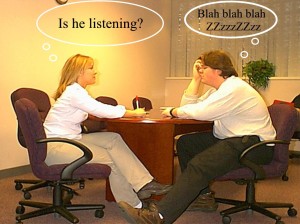


Definition, its importance and its inevitability.Defining the purpose of a speech, organizing the ideas and delivering the speech.Polite and effective enquiries and responses.Listening computerization and note taking.It also ensures that you have a clear understanding of the next steps. Follow upįollowing up after the conversation shows the speaker that you value their input and are committed to addressing their concerns. Be honest about that assessment, even if it's hard realizing you may be a conversation hijacker or joy thief with some people. Showing empathy can help establish trust with the speaker and create a more positive working relationship. Be aware of how you respond to people in your life. Show empathyĮmpathy is the ability to understand and share the feelings of another person. However, don’t take so many notes that you become distracted from the conversation. Taking notes can help you remember key points and show the speaker that you are invested in the conversation. Staying neutral allows you to focus on the speaker’s message without getting sidetracked by your own emotions. Read More: Active Listening Skills: Definition and Examples. One main quality of empathic listening is giving support and encouragement rather than advice or criticism. Remain objective and avoid becoming emotionally involved in the conversation. Also called active listening or reflective listening, empathic listening requires you to be considerate of the other party’s input. When you’re about to have a conversation, put your phone away, turn off the TV, and avoid looking.
#EFFECTIVE LISTENING FULL#
Listen without judgment and give the speaker the opportunity to fully express their thoughts and feelings. 1.Give the other person your full attention to show respect. Listen without making judgments or taking a position on an issue. Don’t make assumptionsĪssuming you know what the speaker is going to say or how they feel can lead to misunderstandings. These cues also help establish a rapport with the speaker.

Nodding, making eye contact, and using other nonverbal cues show the speaker that you are engaged in the conversation. Use nonverbal cues to show you are listening It also gives the speaker the opportunity to clarify any misunderstandings. Paraphrasing shows the speaker that you are listening and helps ensure that you have understood their message correctly. This type of questioning shows that you are genuinely interested in what the speaker has to say. Ask open-ended questionsĪsking open-ended questions encourages the speaker to share more information and insights. Wait for the speaker to finish speaking before responding or asking questions. Interrupting the speaker not only disrupts their flow of thought but also sends a signal that you are not fully engaged in the conversation. This means putting away your phone or other distractions, making eye contact, and actively engaging in the conversation. "And one of the ways to remember this is that if you rearrange the letters of the word 'listen,' it spells 'silent.To be an effective listener, you need to give the speaker your undivided attention. "We need to give people uninterrupted time to speak," says Tania Israel, a psychology professor at the University of California, Santa Barbara and author of the book Beyond Your Bubble. This might sound simple, but it's actually a really important first step. Here are some tips that go beyond the basics: Shut up and listen. The basics of good listening are familiar: maintain eye contact, nod, use "I" statements instead of "you" statements. And dedicating yourself to actively listening can be radical and transformative. Listening actively not only helps you to understand your team members, but it also enhances their feeling of being listened to. But listening - not just hearing - means a lot more than that.

Anyone who has deployed a disengaged "mhmm" while their partner asks about dinner or a kid breaks down the difference between a brontosaurus and a triceratops knows this well. Listening is more than just being physically present when another person is talking.


 0 kommentar(er)
0 kommentar(er)
